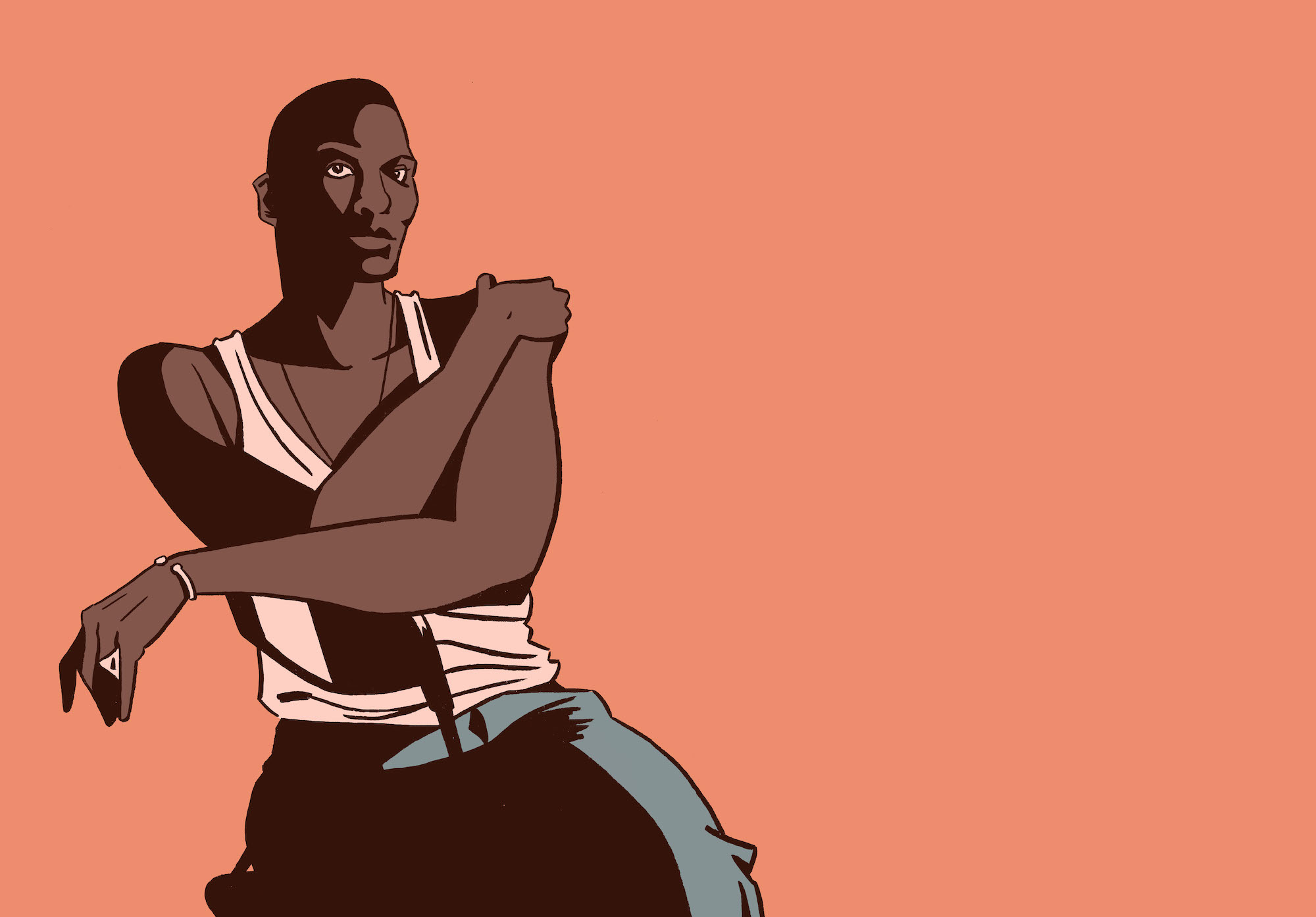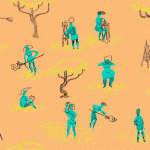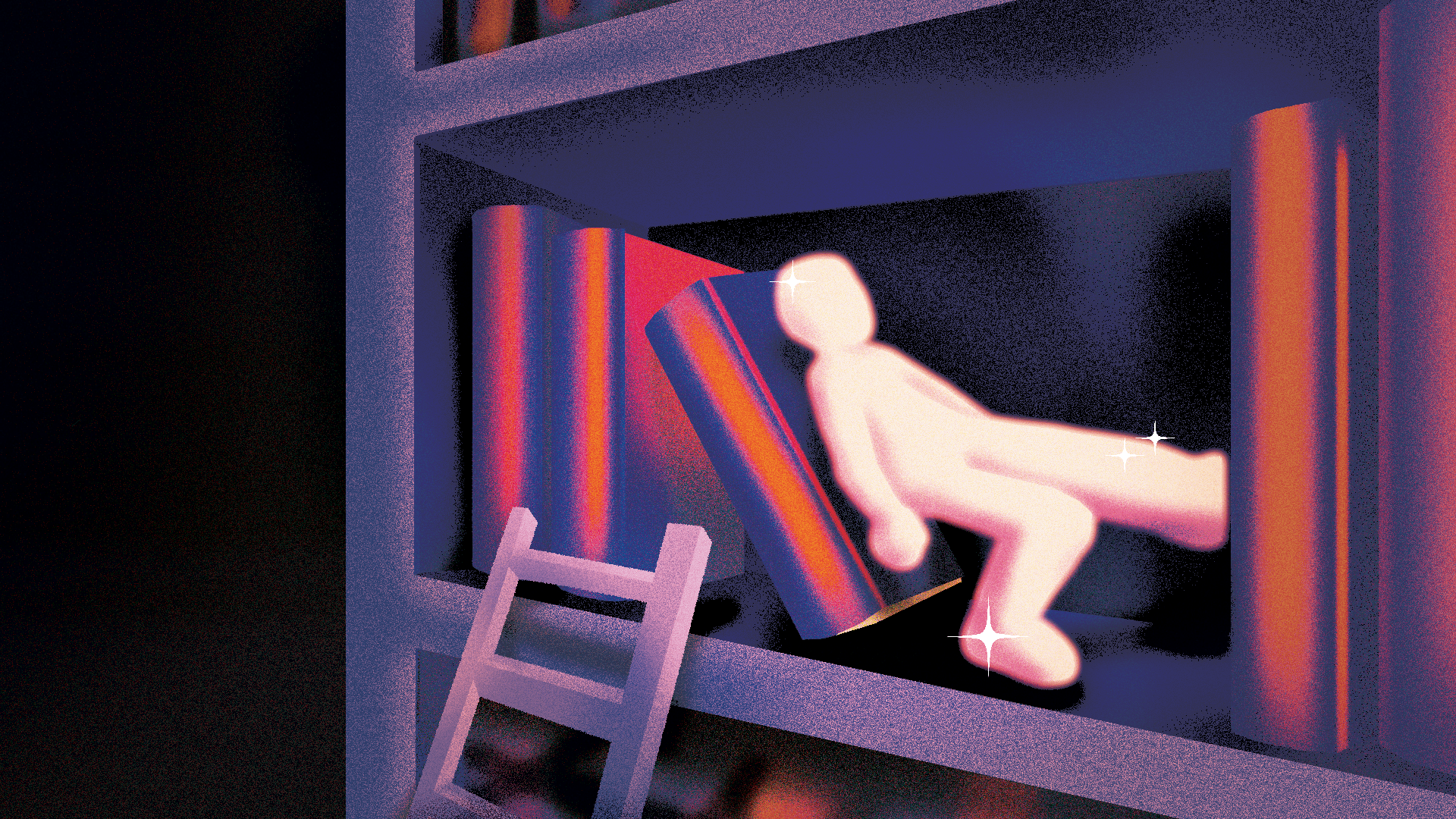
illustration by Brian Fabry Dorsam.
Pamela Sneed is a person whose presence is palpable the second you step into the same room. She has a hypnotizing combination of elegance and authority.
One of the Low-Residency Program’s Visiting Artists, Sneed delivered a lecture that was timely in response to the recent (and not-so-recent) acts of violence, as well as the Black Lives Matter, queer, transgender, and feminist movements.
Sneed read over 16 poems, mostly recent, and the epilogue of her upcoming book, “Sweet Dreams,” edited by Belladona. Her soft, yet powerful voice made it difficult to discern the difference between her poetry and her commentary.
Many of the poems Sneed read mentioned Trayvon Martin, Whitney Houston, Emmett Till, Michael Jackson, and Harriet Tubman. The names of the black men killed by police whose deaths were covered by the media were included in multiple poems. She also read poems about the tragedies of Hurricane Katrina and the Orlando shooting.
Sneed’s poetry often struck a very emotional chord by discussing violence and AIDS: It was inspiring, and yet light-hearted. Her quip that Kim Kardashian and Kanye West should have named North West, “North Star, after Harriet Tubman,” was comical, but profound. At any mention of pop culture, she spoke with a cheeky smile.
In slight contrast to the political poetry, Sneed included a piece about an ex-lover which she prefaced by saying, “Everyone writes terrible poems about ex-lovers,” an example of an instance where the line blurred between her insight and her poetry.
In this way, Sneed has a hypnotizing ability to effortlessly move from one subject to another. She moves from love to the history of colonization in a way that is reminiscent of a skilled musician playing multiple instruments at one time. It’s smooth listening that takes great skill to create.
After reading a vast selection of her work, Sneed gave some personal history and took questions. While the questions portion of the Low-Res MFA lectures are often tedious, Sneed made the best of it and gifted the audience with some great nuggets of wisdom.
In response to a question pertaining to activism, Sneed said, “Everything I do is activism.” This is especially true in teaching. As a teacher, she has the opportunity to educate people on ideas that they may not have encountered before.
“I wish I wasn’t as radical,” was a refrain that Sneed brought up multiple times. She used the example of a time when she was on an all-female panel where they were discussing Beyonce’s music-video/ full-length-film “Lemonade.” Sneed could not sit there and agree with everyone else on the panel — she had to bring up the problems she saw in the film.
The most enlightening piece of advice Sneed had with regard to making art was not to “wait until you feel better” to make art.
“Maybe the place to make art is discomfort,” she said.
Discussing the editing process, Sneed presented questions that one should ask of their writing: “What am I afraid to say? What haven’t I said? Did I take a risk? What do I need to say?” These questions are helpful not only in the revision stage of writing, but also in idea-generating for written and visual work, and perhaps even self-improvement.
Probably the most radical and interesting statement that Sneed made was in response to a question about Azealia Banks’ skin-bleaching and Rachel Dolezal.
At first, Sneed stated that ultimately, she thinks that if a person wants to bleach their skin they have every right to. She then immediately followed that by saying that a person needs to question where this want is coming from. She argued that often, changes in one’s self might be coming from self-hate.
Sneed went on to pose a theory that Michael Jackson could have been an early transgender person who was looking for a way to self-define his blackness. It would have been interesting to hear Sneed expand on this idea, but it seemed to be one of her “radical ideas” that she was not yet entirely comfortable with expressing and perhaps needed further development.
When the talk ended, the crowd filling the Maclean Ballroom erupted in a standing ovation and quickly swarmed around her, thanking her for gifting the room with such wonderful poetry and cultural commentary. The standing ovation solidified the sense that she knows the most effective way to communicate what is going on in the world, and is one of the voices everyone needs to hear.





















